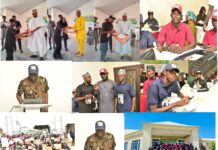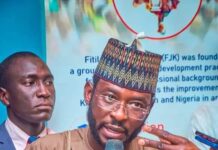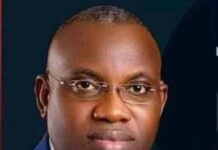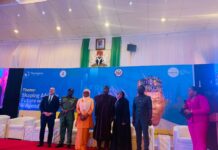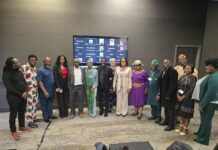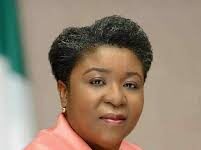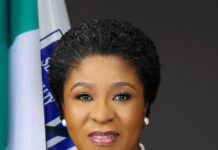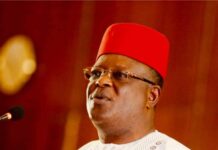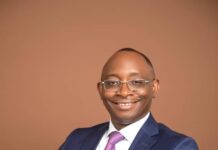How do you Tax Rich Nigerians who Hide Wealth in Tax Heavens – Sowore Knocks Obi
Omoyele Sowore, the former African Action Congress (AAC) presidential candidate, has knocked Peter Obi for calling on the Nigerian government to tax the rich to subsidise electricity for the poor.
Obi, who is a former Labour Party presidential candidate, had charged the government to tax rich Nigerians to be able to provide cheap electricity for the poor.
The former Anambra governor, who spoke in Bauchi on Sunday when he inaugurated a water project he donated to Sabo Layi Community along Bauchi-Ningi Road, said that “the solution is very simple (referring to electricity tariff hike), you can increase the tariff for those in areas where they can afford it”.
He added, “We need to do a lot in the area of power generation because it has taken so long. But we have to put into consideration that majority of Nigerians are suffering.
“So we need to support people in those areas to be able to live and be able to produce something. When they start to produce something, we are pushing them out of poverty and that’s where my theory of moving from consumption to production comes in.”
But reacting to the suggestion, Sowore berated Obi, noting that he was dumb for foolishly repeating slogans from other climes.
Sowore, who stated this in a post he shared on his X (formerly Twitter) handle on Monday, asked if the electricity tariff increase was not for the same rich and “overfed good-for-nothing rich buccaneers as if fuel subsidy removal was not meant to benefit the Nigerian nouveau rich.”
He wrote, “These guys are just so DUMB, so dumb they wake up and “Copy and Paste” slogans from other climes; this was how Mr. Peter Obi woke up one day and travelled to Egypt and claimed he went to learn about how to generate electricity (he visited a switchboard in one Egyptian Power station and returned was it!).
“Now he is here asking to “tax the rich” as if the electricity tariff increase is not for the same rich and overfed good-for-nothing rich buccaneers as if fuel subsidy removal was not meant to benefit the Nigerian nouveau rich, as if the rich pay taxes.
“They support their Uncle Asiwaju Bola Ahmed Tinubu to decimate the poor; as soon as the poor are further decimated, they start commissioning boreholes for them. DUMB People!
“By the way, how do you tax the rich who hide their wealth in tax havens? #Revolutionnow.”
SaharaReporters reported earlier on Monday that 27 people were set to go on trial today (Monday) for money laundering in connection with the “Panama Papers” tax evasion scandal, which revealed how many of the world’s wealthy stashed assets in offshore companies.
The defendants due to go on trial in a Panamanian criminal court include Jurgen Mossack and Ramon Fonseca Mora, the founders of the now-defunct law firm at the centre of the scandal, according to France24.
The leaked trove of 11.5 million files from their company Mossack Fonseca implicated influential figures including billionaires, politicians and even sports stars.
The 2016 revelations rocked governments, exposed high-profile personalities, triggered scores of investigations around the world and dealt a blow to Panama’s reputation as an offshore financial hub.
On October 3, 2021, Sahara Reporters reported that a new global investigation exposing the offshore hideaways of some of the world’s most powerful personalities was launching after two years of discreet work by investigative journalists around the world.
Read Also:
The project, known as Pandora Papers, was facilitated by the International Consortium of Investigative Journalists, ICIJ, which obtained a trove of 11.9 million confidential files.
The reporting involved 600 journalists from 150 news organisations around the world, including Premium Times.
It revealed the financial secrets of not less than 35 current and former world leaders, and more than 330 public officials in more than 91 countries and territories.
The Panama Papers series launched five years after the Panama Papers Revelations which were published in 2016.
That investigation exposed offshore companies linked to more than 140 politicians in more than 50 countries – including 14 world leaders.
In the course of that investigation in Nigeria, several stories with damning details revealing the secret offshore asset of many prominent Nigerians were published.
It is not illegal for Nigerians who are not public officers to own offshore accounts, and many prominent businesses do have them.
However, some public officials found to have accounts did not disclose them as expected by law.
One of the newspapers involved in the investigations, Premium Times revealed the secret offshore assets of Senate President Bukola Saraki and his wife Toyin; as well as those of Mr Saraki’s predecessor, David Mark.
It also revealed how the late governor of Bayelsa State, Diepreye Alamieyeseigha, began looting his state and hiding public funds in offshore structures and how a former governor of Delta State, James Ibori, organised the stealing of the oil-rich state’s funds via offshore companies.
The investigations also revealed a network of shell companies in offshore tax havens linked to Africa’s richest man, Aliko Dangote, and his brother, Sayyu Dantata; as well as the offshore companies of Wale Tinubu, the chief executive of Nigeria’s biggest indigenous oil company, Oando Plc, among others.
Similarly, the stories also exposed the secret offshore company of one of Africa’s most influential televangelists, Temitope Joshua, popularly called T.B. Joshua, who died in June 2021.
Other prominent Nigerians named in the investigations were former Minister of Defence and billionaire businessman, Theophilus Danjuma; businessman, Hakeem Belo-Osagie; Globacom CEO, Mike Adenuga; Governor Abubakar Sadiq Sani Bello of Niger State; the late Ooni of Ife, Okunade Sijuwade; former Arik Air Chairman, Joseph Arumemi-Johnson and his wife, Mary, as well as two then-serving senators – Andy Uba (Anambra) and Ibrahim Gobir (Sokoto).
The investigation also revealed that Peter Obi had several secret business dealings and relationships including some he clandestinely set up and operated overseas, including in notorious tax and secrecy havens in ways that breached Nigerian laws.
When Premium Times contacted Obi, he was said to have admitted that he did not declare the companies and the funds and properties they held in his asset declaration filings with the Code of Conduct Bureau, the Nigerian government agency that deals with the issues of corruption, conflict of interest, and abuse of office by public servants.
He claimed he was unaware that the law expected him to declare assets or companies he jointly owned with his family members or anyone else.
Other top businesspersons, politicians, and their family members were also found in the infamous database, including those who were then holding public offices.
The revelations sparked outrage across Nigeria, with activists, civil society organisations, the labour movement, and the general public calling for extensive probes of those mentioned. But none of the violators has so far been prosecuted or sanctioned.






